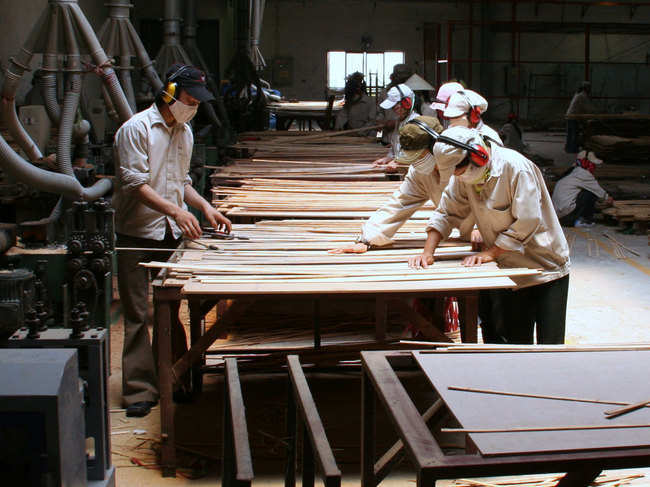 Getty Images
Getty ImagesThe increasing visibility of the adverse affects of climate change has been throwing challenges to the international organizations, governments, corporate, academia and civil society across the globe to search for sustainable solutions which is why innovation has become the new global mantra for sustainability.
It has been accepted globally that sustainable development requires innovations to develop cutting-edge technology as well as to harness the natural resources more judiciously to make the planet a better living place.
Innovations are occurring as solutions to many problems across domains and providing superior alternatives to the existing practices. Electric cars, organic farming, renewable energy and e-learning are some of the good examples.
In the service sector or manufacturing sector, innovations are occurring in India on a daily basis. The Startup India initiative has created a new wave of entrepreneurship, but more innovations have happened in services sector than in manufacturing. In the manufacturing sector innovations can happen at multiple levels in the supply chain and value chain.
Bamboo for sustainability
So far as protection of the planet is concerned, bamboo has the potential to provide the much needed solutions for sustainability. Bamboo releases 35% more oxygen than other plants to the environment and bamboo absorb 20% carbon dioxide from the environment. Scientific plantation of bamboo could dramatically improve air quality with the release of more oxygen and sequestering more carbon dioxide. Sudden unprecedented floods have been a major cause of concern everywhere in the world. But in India, soil erosion during floods, especially along the river banks, has been a sort of a menace.
Acres and acres of land get washed away during floods; Bamboo could be used for erosion control as well as to improve the quality of soil. Bamboo has already proved to be highly effective in soil erosion control in many countries. Bamboo being a versatile material could help us reduce our dependence on hardwood and plastic in a much bigger way and thereby help save the trees and eradicate plastic from our living space.

Bamboo for a sustainable economy
Bamboo is a highly renewable grass yet stronger than steel in terms of tensile strength. A bamboo tree matures in 4 to 5 years whereas a hardwood tree takes almost 60 years to mature. Unlike hardwood trees, bamboo can be harvested without adverse effect on the environment. A bamboo revolution of sorts has already swept almost all the continents of the world over. However, India, despite being the second highest bamboo growing country in the world, has not made much headway in harnessing the potentials of bamboo, let alone capturing a sizeable market share in the global market.
Bamboo is fast proving to be superior alternative to wood and plastic for many uses. Bamboo as an ideal construction material has been gaining traction. Bamboo flooring has been well accepted in the global market. Bamboo fabric apparels and clothing are fast gaining popularity, especially due to its intrinsic characteristics such naturally organic, anti-fungal, antibacterial, ultra soft, super-absorbent and thermostatic.
Bamboo cosmetic brands have entered the premium segments of markets in various countries. Bamboo beverage brands are being launched in various parts of the world. Bamboo has also occupied a place in Lexus car’s dashboard and steering wheels. Many car manufacturers are considering bamboo as an ideal alternative for car interiors.
Though, China, Indonesia and Vietnam have been known as major players in the bamboo sector, a few Japanese companies have actually made major inroads in to super premium segments of the market with superior quality products. One Japanese company has been manufacturing steering wheels for Lexus cars and another company already has a presence in 15 European countries with their bamboo furniture brand stores. Over 1000 products are made from bamboo besides traditional products like handicrafts and utility products. In fact, from the first leaf to the roots of bamboo, every section of a bamboo can be used to manufacture different products.
Why is India lagging behind?
Despite being the second highest bamboo growing country in the world, India has lagged behind in harnessing the full potential of its bamboo resources, primarily due to lack of serious research to develop innovative indigenous technology. Rather India has fallen in to Chinese technology trap.
The bamboo species which are available in India are unique to India and require unique technology to harness the potential. We could probably manufacture far more superior products than any country, if we had the technology developed for our bamboo species.
India’s Northeast has been endowed abundant bamboo resources, sufficient enough to build a sustainable robust economy as well as to contribute towards climate change mitigation. Government should encourage only high value product manufacturing from bamboo. That said, a lot of work still needs to be done to use and promote bamboo as an alternative to wood, plastic and steel. Search for innovation for sustainability will never end and should never end.
(The writer is Founder & CEO, Ivantage Craft Pvt. Ltd.)











 Get Unlimited Access to The Economic Times
Get Unlimited Access to The Economic Times
